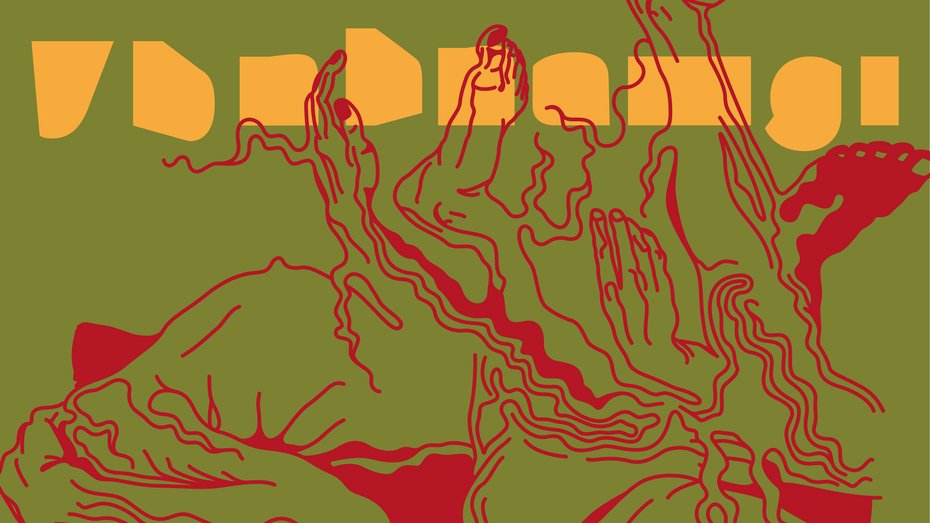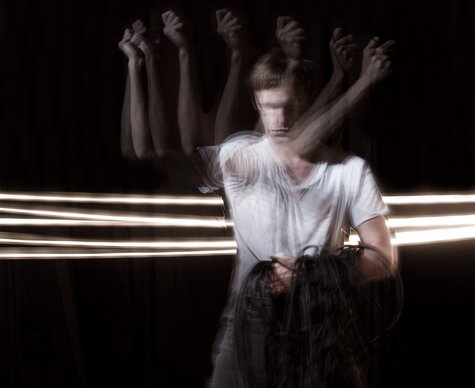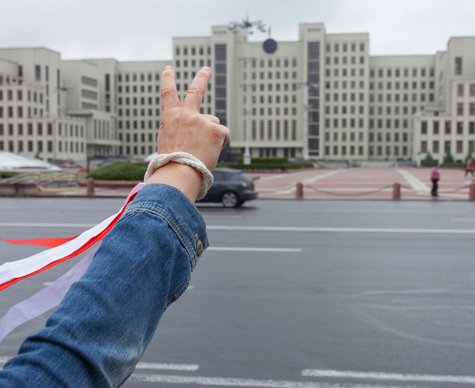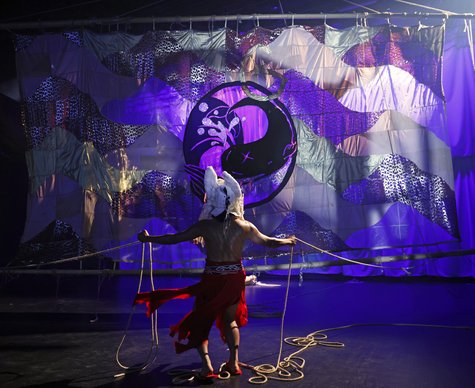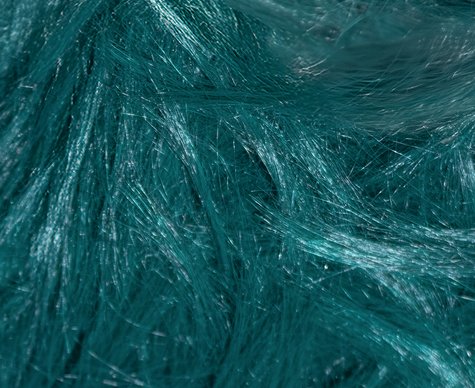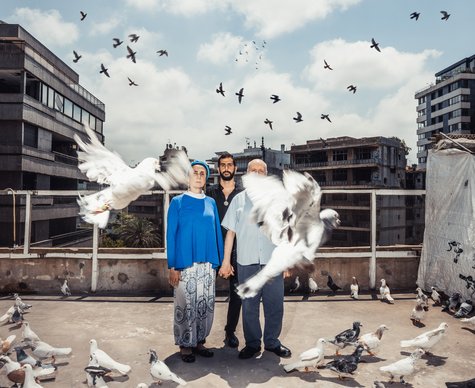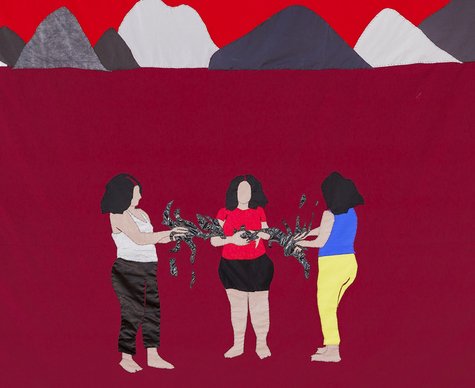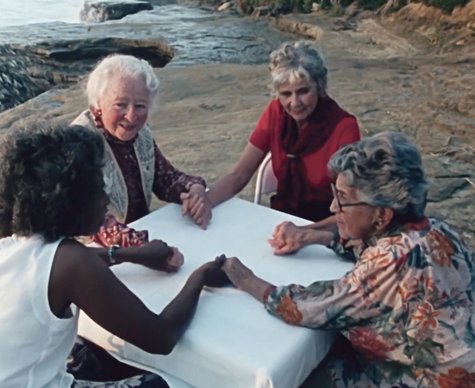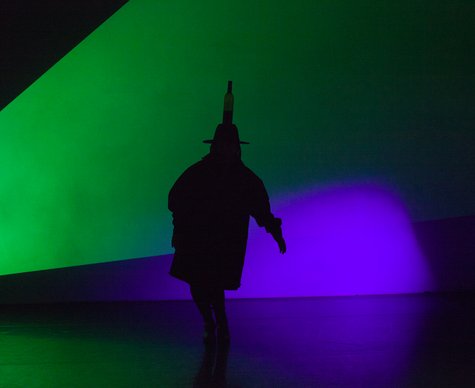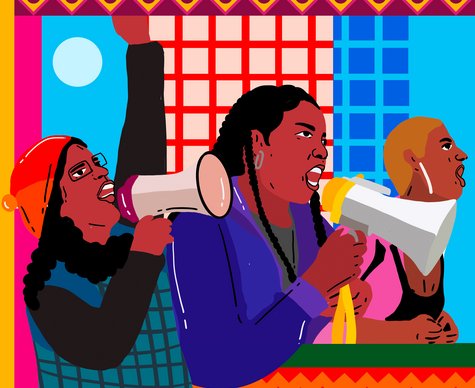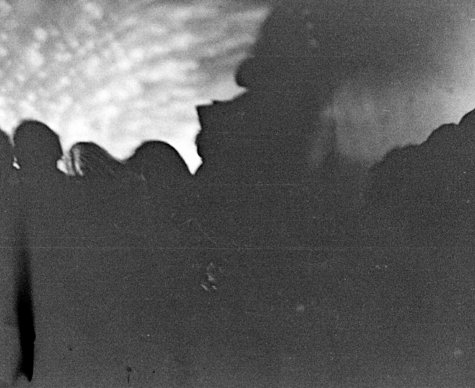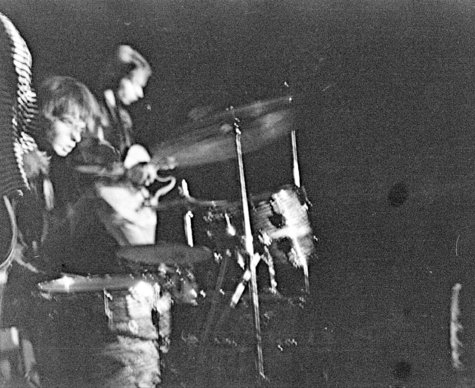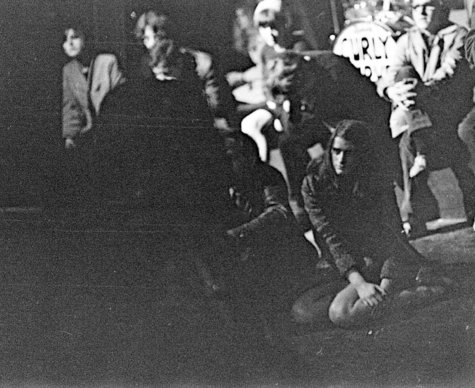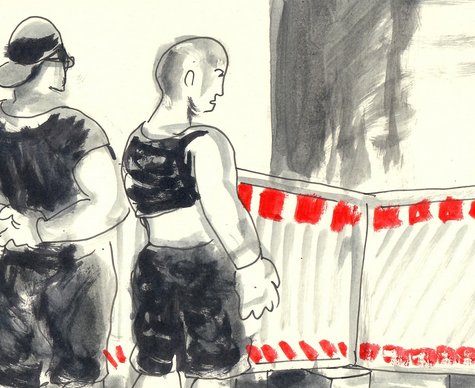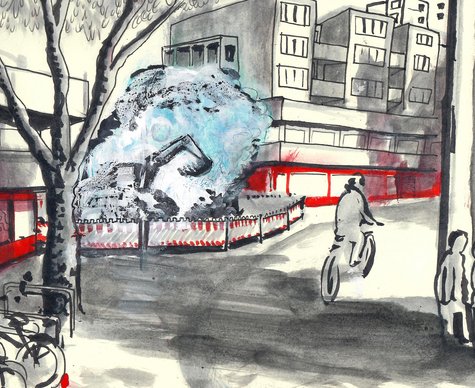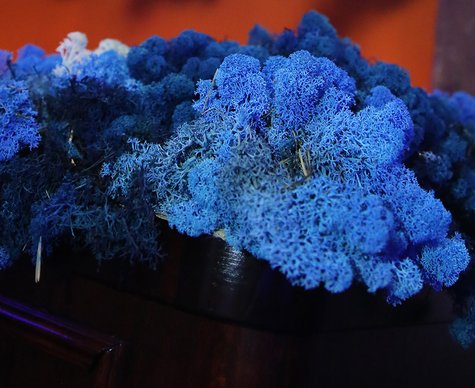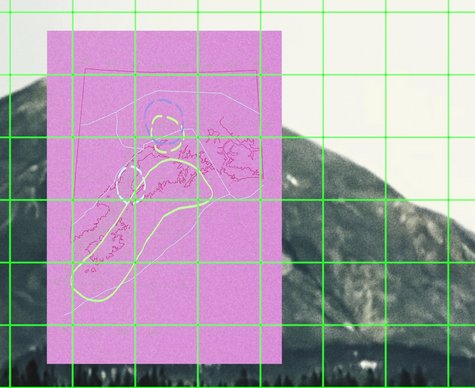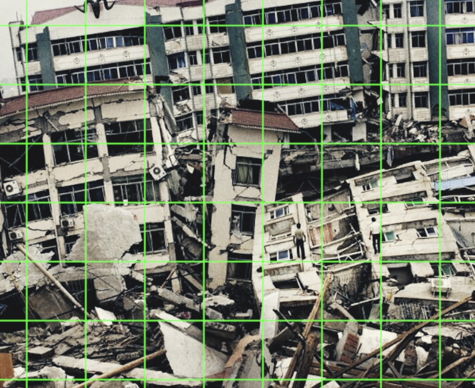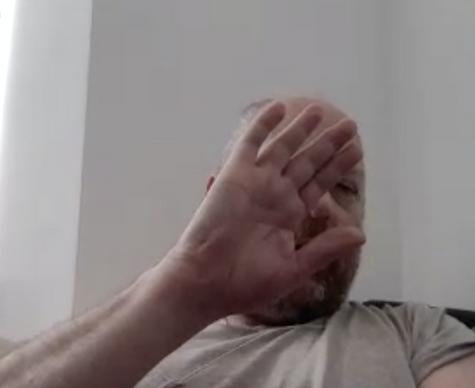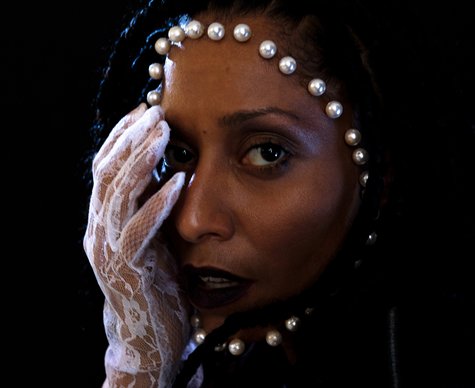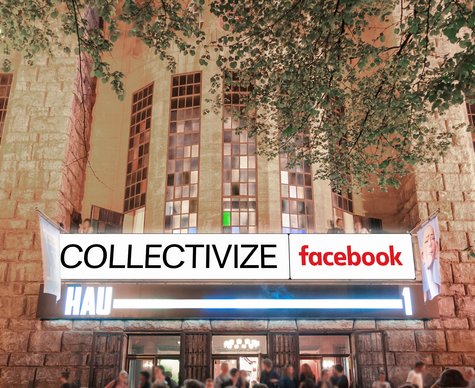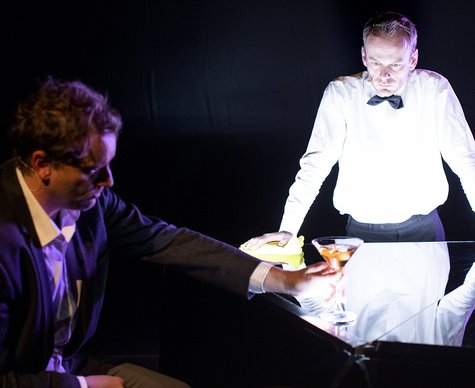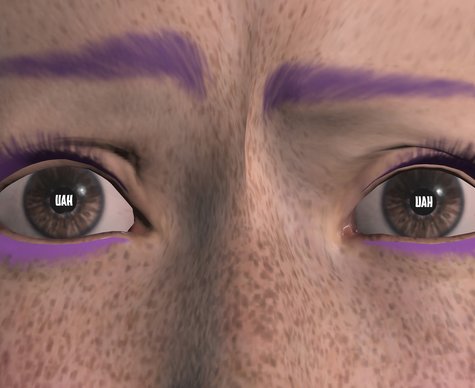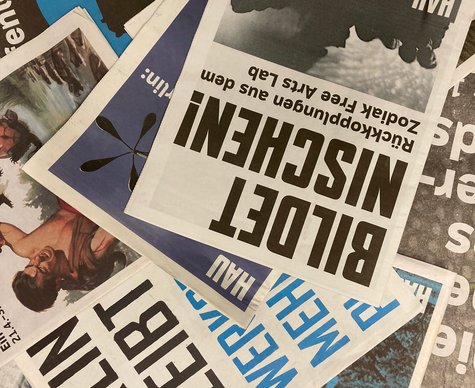Curated by: Anguezomo Mba Bikoro, Aouefa Amoussouvi, Saskia Köbschall / Curatorial assistance: Ragil Huda / Management: Tine Elbel
Nyabinghi Lab presents
What the Land Remembers: Racism and Environmental Injustice
Part of “The Roots of Our Hands Deep as Revolt. Entangled Colonialities of the Green”
- Dialogue
- Performance
“In order to think through a cartography of Black ecologies, it is necessary to remember that the relationship between Black subjectivity and the more-than-human remains contested. It is fraught with histories of colonial violence, with increasingly harsh climates, and with the haunting of dispossessed lands, lives, and lifeways; the rituals through which we lived, loved, killed, ate, decomposed, and dreamed together.” – Ama Josephine Budge (speculative writer, artist, curator and pleasure activist)
The second day of the programme, titled “What the Land Remembers: Racism and Environmental Injustice”, explores the imperial durabilities of the human-nature relationship, particularly regarding land. The panel and performances explore how colonialism and racism continue to shape nature conservation, toxic landscapes and climate change to this day.
Programme
15:30-18:00
“After The Company” – film programme by Lisabona Rahman and Ragil Huda
Screening this evening will be two films that take place in Indonesia, set almost half a century apart, linked by the theme of “landsploitation”. “The Builders” from 1972 proclaims the promise of economic prosperity that is only possible at the expense of the earth as it is exploited by oil production. This is followed by “30 Tahun Su Lewat (30 Years Have Passed)” from 2019, showing the lives left behind by profiteering palm oil plantations.
“The Builders” adopts logic along with its accompanying economic model. The narrative fits into the machinery of an authoritarian state that uses nationalist jargon to justify plundering environmental resources. The film itself was created by the image production machinery: behind it is a Hong Kong-based company owned by New Zealand director Brian Brake. His aerial shots, the highly stylised image design, and the imposing voiceover convey the language of colonial power. In contrast is “30 Years Have Passed”, a film of resistance by directors Monaliza Upuya and Bernad Koten. Shot with simple means, it focuses on one goal: to give a voice to the people who once lived in harmony with the earth, but meanwhile have been displaced by the company that created and eventually abandoned the region's palm oil plantations.
19:00-20:45
Panel with Zina Saro-Wiwa, Peter Emorinken-Donatus and Imeh Ituen, moderation: Aouefa Amoussouvi
21:00-22:00
Performance by Ladji Kone “Going Green – Upside Down” (“Allant vert a l´envers”)
The performance “Allant vert a l´envers” addresses the synergy and proximity between humans and nature, and reflects on humans as nature. It's a project about questioning natural instincts, about the complicity and closeness of city dwellers with urban greenery, with rituals in chaos and unconscious imbalance with no guaranteed points of reference. Projecting ourselves from a park in Ouagadougou, we find ourselves in the middle of a magical space that is losing its balance and threatened by various dangers. Their unexpected inhabitants are faced with the challenge of saving their habitat, and despite their different characters, they are looking for collective answers. Will the natural spirits and mythical deities be on their side?
The participants
Ragil Huda is a curator, cultural practitioner, and graduate student at the Asien-Afrika Institut, Universität Hamburg. He is also one of the committees organizing the international platform and network called ‘Queer’ Asia in Berlin. His community engagement and academic work specifically centre on queerness, community building, critical pedagogy, and the social-political realities of marginalized communities through various methodologies and collaborative curatorial practices.
Zina Saro-Wiwa is a multi-disciplinary artist working with video installation, sound, photography, film, distillation, food and institution-building. Her subject of interest are primarily environmentalism under which she explores invisible and spiritual ecologies and the nature of power and she is constantly studying and re-imagining indigeneity. She is committed to exploring how earth-based wisdoms challenge political power dynamics and advance creativity. She runs her own not-for-profit the Mangrove Arts Foundation which uses art, culture, food and agricultural projects including her Illicit Gin Institute to transform the fate of the oil-cursed Niger Delta. She is also working on her first ever feature film titled “Eucharia”.
Peter Emorinken-Donatus is a freelance journalist, winner of the taz Panter Prize 2022, educational consultant, environmental activist and long-time opponent of the Shell corporation. Emorinken-Donatus is co-initiator and spokesperson of the movement Bündnis Ökozidgesetz, which was founded with the aim of criminalising ecocide, and together with some experts from the Global South living in Germany, he recently founded the BIPoC think-tank Care & Repair - Decolonial Think-Tank For Environmental Justice. He is currently researching the topic of flight and displacement in connection with the environment and ecocides.
An artist, dancer, choreographer, and composer, Ladji Kone began dancing as a self-taught student in his neighbourhood of Ouagadougou in Burkina Faso. In 2003, the discovery of hip-hop culture channelled his exuberant energy, and breakdancing became his laboratory for exploring the possible. After training in theatre and music, he turned to contemporary dance. Today, Ladji is pursuing his artistic research at the crossroads of languages: hip-hop, traditional and contemporary dance, theatre and visual art. In the company Ciel K, he has merged his universe with the visual artist Michaela Solnická Volná. He is a co-founding member and artistic director of the Collectif JUMP (Jeunesse Unie pour un Mouvement Positif) in Burkina Faso, aiming to promote creativity as a factor in research and education in various fields.
Team
Dates
Credits
Funded by the TURN2 Fund of the Kulturstiftung des Bundes (German Federal Cultural Foundation). Funded by the Beauftragte der Bundesregierung für Kultur und Medien (Federal Government Commissioner for Culture and the Media). In Cooperation with HAU Hebbel am Ufer, Chimurenga and Kunstraum Kreuzberg/Bethanien. Part of the exhibition “The Roots of Our Hands Deep as Revolt: Entangled Colonialities of the Green” at Kunstraum Kreuzberg/Bethanien (18.11.2023–14.01.2024).

Location
HAU2
Hallesches Ufer 34, 10963 BerlinThere are two marked parking spots in front of the building. Barrier-free restroom facilities are available. Four relaxed seats are available in the first row of HAU2.
